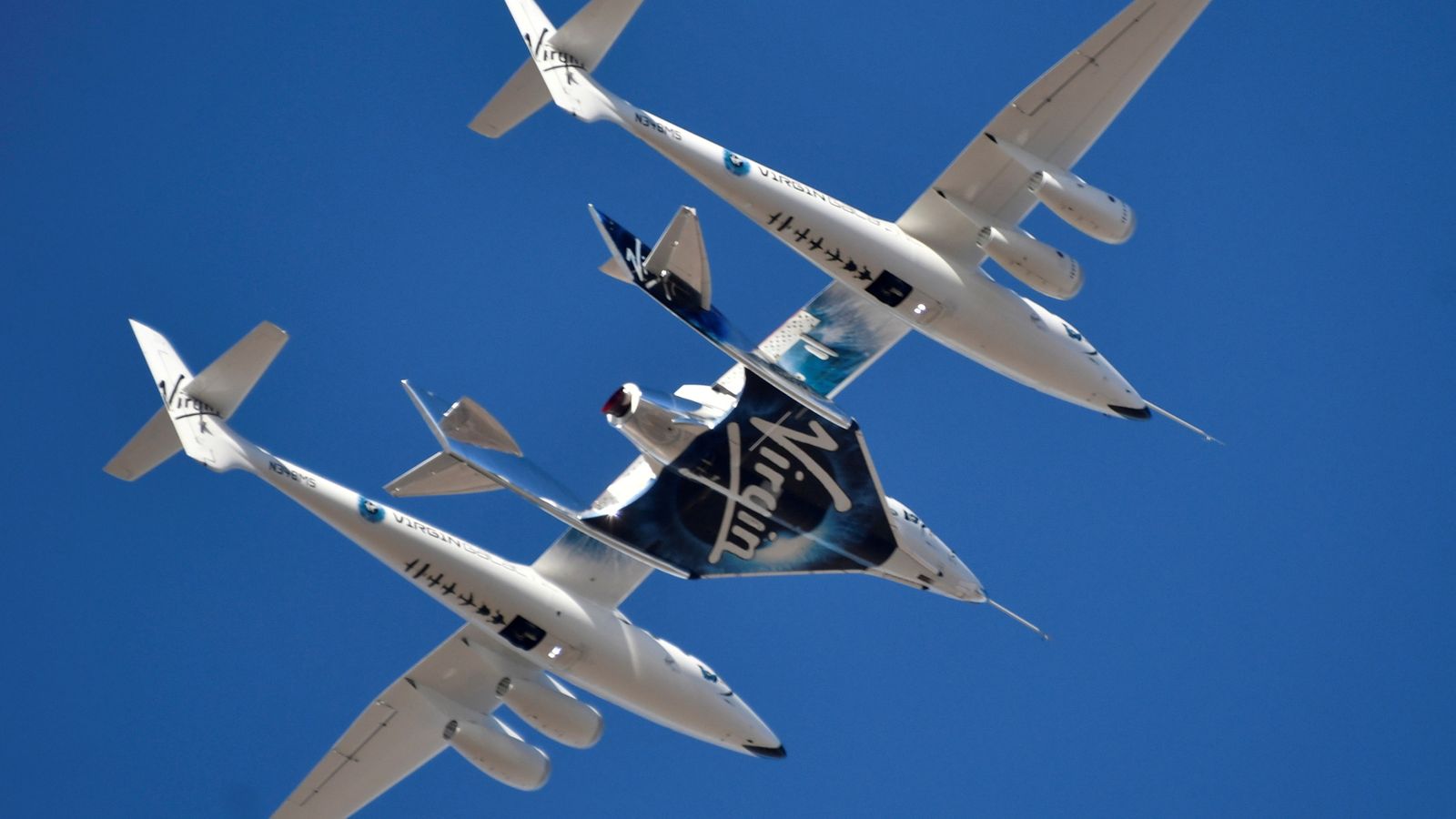Virgin Galactic has postponed its next test flight due to safety concerns regarding the “strength margins” of materials used in the rocket plane.
The move follows a regulatory investigation into the company’s maiden launch in July, for which founder Sir Richard Branson was on board, and that flagged concerns which Virgin Galactic accepted.
The space tourism company, which doesn’t actually take passengers into space according to the international definition of where space begins – although NASA sets the altitude lower – said it did not expect commercial flights to resume until the end of next year.
The delays follow a ban placed on the company’s flights by the Federal Aviation Administration (FAA), which said Virgin Galactic’s rocket plane veered off course during its descent back to a runway in the New Mexico desert on 11 July.
Following the flight the company saw more than $1bn wiped off its value as it revealed plans to sell up to $500m in shares.
The FAA inquiry, which concluded in September, recommended several steps to ensure that Virgin Galactic flights were safe, something which the company accepted.
From a high of $55.91 (£40.65) per share in June the company’s value has dropped 63% to $20.37 (£14.81) in October.
Virgin Galactic flights grounded pending investigation into ‘mishap’ during Richard Branson space mission
Branson, Bezos, Musk: The billionaire space race but what’s in it for us?
Virgin Galactic value falls back to Earth despite successful flight – as share sale plan revealed
“We appreciate the FAA’s thorough review,” said chief executive Michael Colglazier.
“Our entire approach to spaceflight is guided by a fundamental commitment to safety at every level, including our spaceflight system and our test flight programme.”
The new delay follows routine laboratory tests which revealed some of the materials the company was using were were weaker than expected, which requires “further physical inspection”.
“While this new lab test data has had no impact on the vehicles, our test flight protocols have clearly defined strength margins, and further analysis will assess whether any additional work is required to keep them at or above established levels.
“Given the time required for this effort, the Company has determined the most efficient and expedient path to commercial service is to complete this work now in parallel with the planned enhancement program,” it added.






















